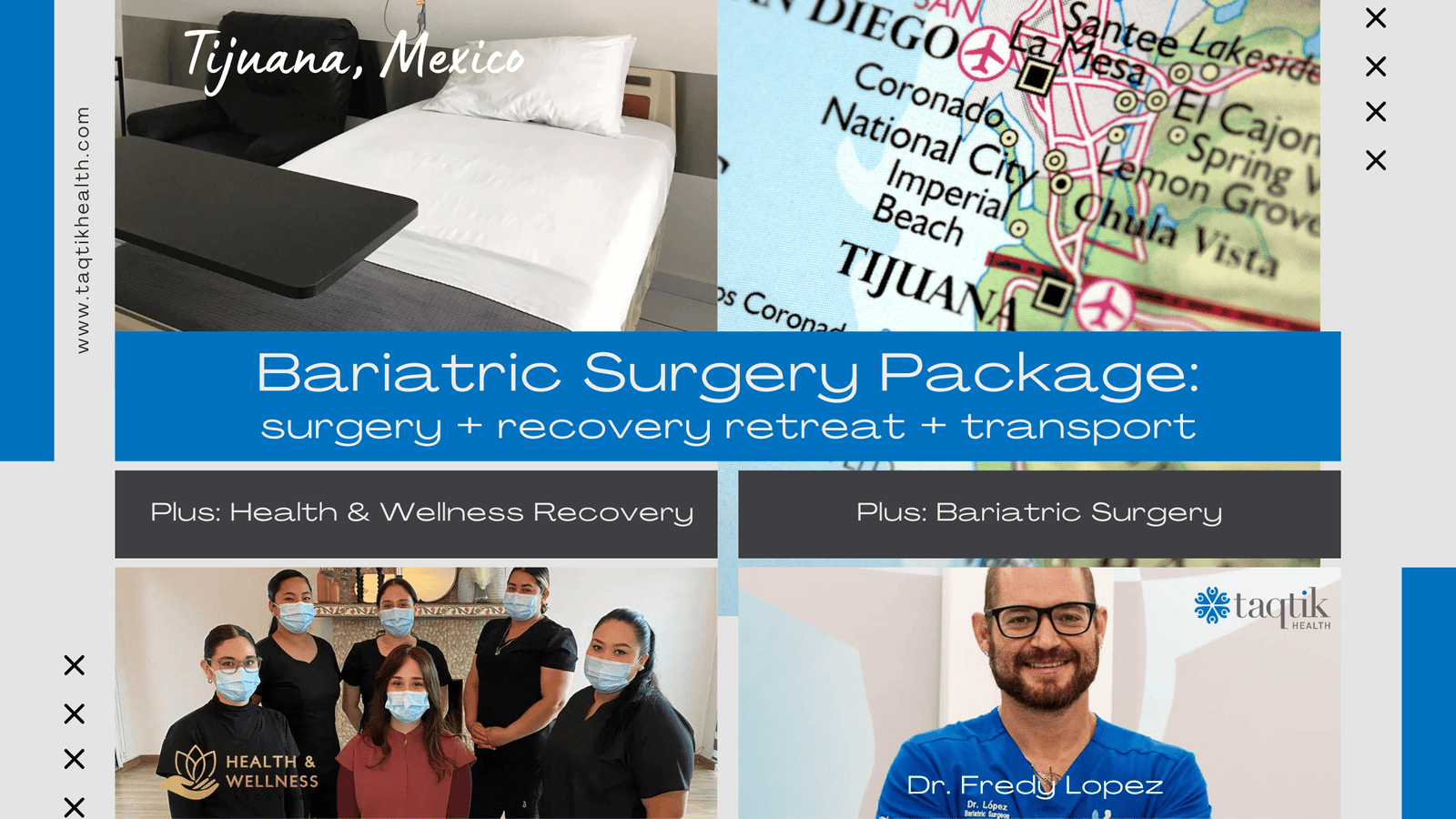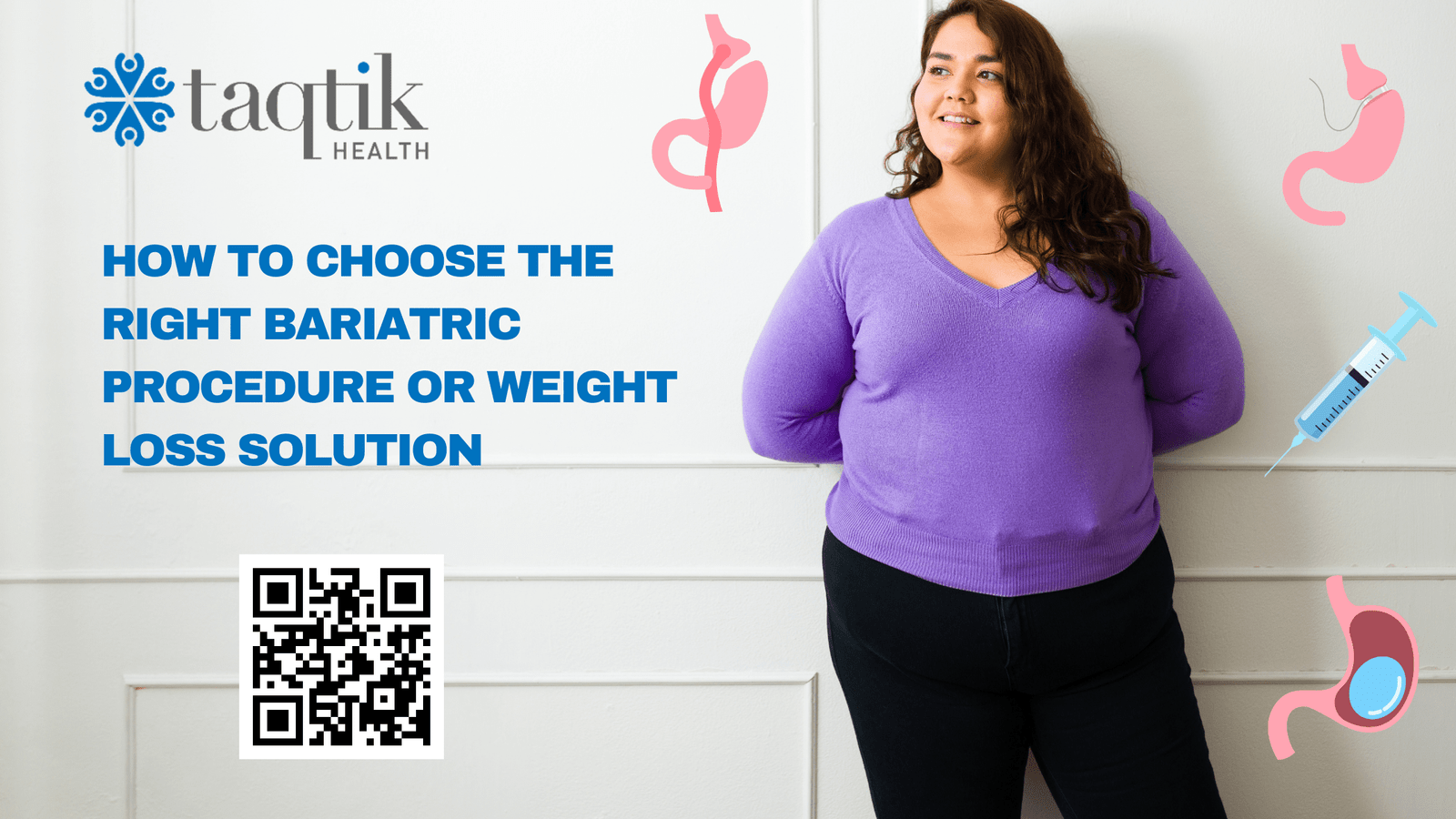Understanding the Obesity-Depression Connection and the Transformative Power of Bariatric Surgery
Introduction:
At Taqtik Health, we understand the complexities of health issues like obesity and depression. Recent studies have uncovered a deeper connection between these two conditions, offering new insights into their management, especially the role of bariatric surgery.
The Interlinked Path of Obesity and Depression:
Recent research, including a study from the University of Cambridge, has shown a bidirectional relationship between obesity and depression. The findings suggest that increases in depressive symptoms can lead to short-term weight gain, particularly in individuals who are overweight or obese. This highlights the intertwined nature of physical and mental health.
The Precedence of Obesity in Mental Health Disorders:
A groundbreaking study reported in Psychology Today revealed that obesity often precedes the diagnosis of mental health disorders. This suggests that effectively managing obesity could play a crucial role in preventing the onset of mental health conditions.
The Role of Bariatric Surgery:
At Taqtik Health, we recognize the potential of bariatric surgery in addressing these intertwined health issues. Bariatric surgery is more than a weight loss procedure; it's a step towards overall health improvement, including mental well-being.
Benefits Beyond Weight Loss:
The weight loss achieved through bariatric surgery can lead to enhanced self-esteem and reduced symptoms of depression and anxiety. This holistic approach to obesity treatment is crucial for ensuring the overall success and improved quality of life for patients.
Patient-Centered Approach:
We believe in a comprehensive treatment plan for our patients considering bariatric surgery. This includes pre-surgical psychological assessments and ongoing mental health support, ensuring a holistic path to wellness.
Conclusion:
Understanding the link between obesity and depression is key to providing effective treatment. Bariatric surgery offers a promising solution, addressing both physical and mental health aspects. At Taqtik Health, we are committed to guiding our patients through this transformative journey with comprehensive care and support.
References:
-
- University of Cambridge study on depression and weight gain: ScienceDaily
- UK COVID-19 study on obesity and depression: Drugs.com
- Psychology Today article on obesity preceding mental health disorders: Psychology Today
Taqtik Health RPM: Your Partner in Post-Bariatric Surgery Success
At Taqtik Health, we understand that bariatric surgery is a powerful step toward a healthier, more fulfilling life. But we also know that the journey doesn’t end in the operating room. The real challenge and the real transformation happens in the months and years after your procedure. That’s why we created Taqtik Health Remote Patient...Continue reading→
Post-Bariatric and GLP-1 Post-Care to Maximize Results
Post-Bariatric and GLP-1 Post-Care to Maximize Results | Taqtik Health Introduction Undergoing bariatric surgery or starting GLP-1 (glucagon-like peptide-1) agonist treatments like semaglutide (Ozempic, Wegovy) or tirzepatide (Mounjaro, Zepbound) is a major step toward long-term weight loss and improved metabolic health. But these treatments are only part of the journey. What you do after surgery...Continue reading→
Remote Patient Monitoring for Obesity: A Smarter Way to Support Surgical and Non-Surgical Patients
Losing weight and improving your health is a personal journey—and it doesn’t always require surgery. Whether you're preparing for bariatric surgery, recovering from it, or trying to manage your weight and health without surgery, one thing remains constant: support matters. At Taqtik Health, we believe long-term success comes from daily progress, consistent accountability, and expert...Continue reading→
How Remote Patient Monitoring (RPM) Supports Bariatric Surgery and Diabetes Care
Remote Patient Monitoring for Bariatric Surgery and Diabetes Management Choosing bariatric surgery or committing to better diabetes management is a life-changing decision—and it’s just the start of your journey to a healthier, happier you. Whether you’re preparing for surgery, healing afterward, or working to manage diabetes, having the right support makes all the difference. That’s...Continue reading→
Advancing Value-Based Healthcare Through Cross-Border Health
At Taqtik Health, we are dedicated to delivering value-based healthcare by providing patients with affordable, high-quality, and patient-centered medical solutions. Our platform connects individuals with top-tier healthcare providers worldwide, ensuring they receive the best possible care at the best value through cross-border healthcare. How Taqtik Health Contributes to Value-Based Healthcare 1. Affordable, High-Quality Care Without...Continue reading→
Navigating Healthcare After Job Loss: Options and Strategies for Coverage
Losing your job is stressful enough without the added worry of losing your healthcare coverage. For many individuals in Western countries, health insurance is tied to employment, leaving them vulnerable during times of economic uncertainty and widespread layoffs. Taqtik Health explores the options available to ensure you can access quality healthcare even when you're between...Continue reading→
Transform Your Life with Our Bariatric Surgery Promotion in Tijuana Mexico
Transform Your Life with Bariatric Surgery at J.L. Prado Surgical Center in Tijuana, Mexico, with Dr. Fredy Lopez Are you ready to take control of your health and achieve long-term weight loss? Taqtik Health is excited to offer a special promotion for bariatric surgery at J.L. Prado Surgical Center with the renowned Dr. Fredy Lopez,...Continue reading→
Overcoming Challenges on Your Journey to Weight Loss and Health
Overcoming Challenges on Your Journey to Weight Loss and HealthContinue reading→
Bariatric Surgery Case Study: Kael Sangnam
Background: Kael Sangnam, a 37-year-old with a BMI of 34.7, had been struggling with several health issues, including sleep apnea, shortness of breath, and persistent back pain. Despite various attempts to manage her weight, these health conditions continued to affect her quality of life. Realizing that these conditions were closely linked to her weight, Kael...Continue reading→
How to Choose the Right Bariatric Procedure or Weight Loss Solution
Choosing the right weight loss solution is a deeply personal decision that depends on various factors, including your health, lifestyle, and goals. At Taqtik Health, we understand the complexities involved in making this choice and aim to provide you with comprehensive information to help you make an informed decision. This guide will explore the different...Continue reading→



















